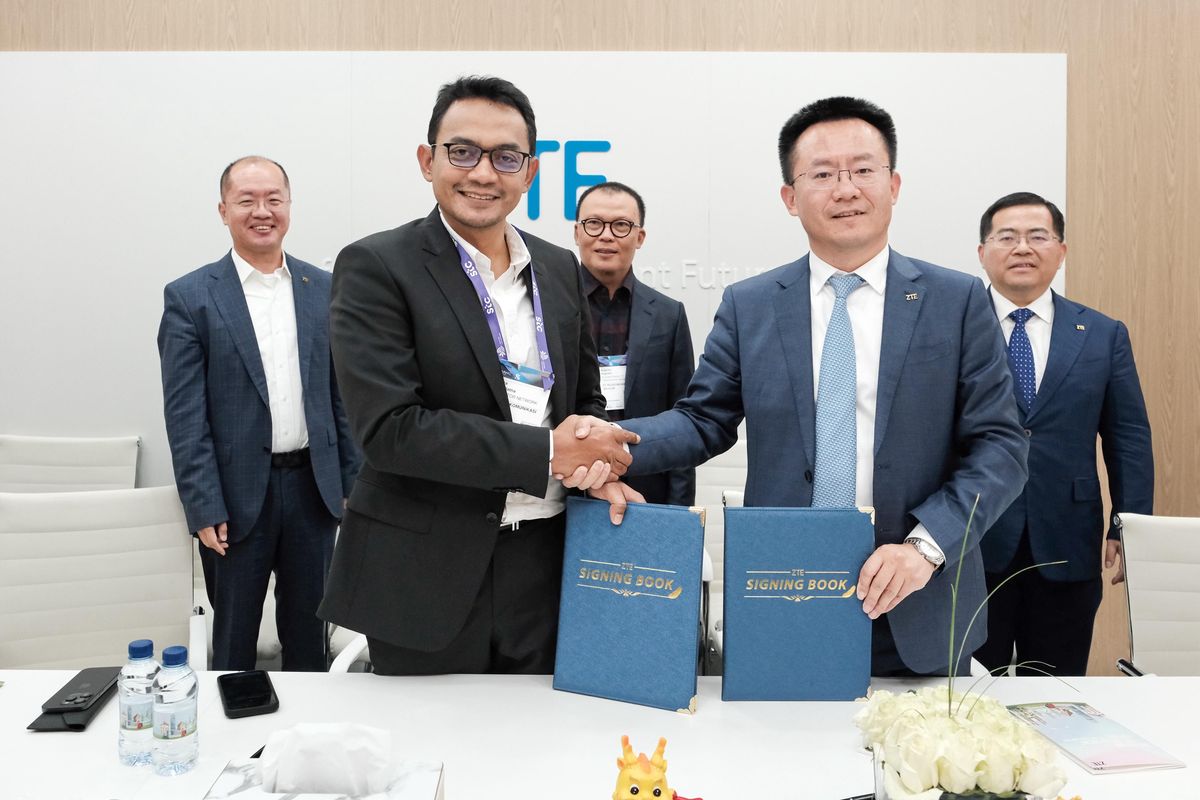Telkomsel, Indonesia's leading digital telecommunications provider, has introduced an innovative AI and machine learning (ML)-powered network solution designed to enhance 4G/LTE services in the cities of Makassar and Kendari. This breakthrough, called Self-Adaptive Feedback, marks a significant milestone in Telkomsel’s collaboration with ZTE Corporation, a global leader in information and communication technology solutions. The technology is part of Telkomsel’s broader Hyper AI initiative, which seeks to optimize network performance while focusing on customer needs.
The introduction of the Self-Adaptive Feedback solution aligns with the growing demand for high-speed internet and aims to improve network performance without requiring additional hardware. This AI-driven system automatically adjusts key network parameters, such as speed and power control, to optimize the user experience for data-heavy applications like video streaming and gaming. Additionally, the solution delivers substantial operational cost savings by improving energy efficiency across the network.
"Aligned with our commitment to continuously enhance service quality through the latest technological innovations, Telkomsel and ZTE have implemented the Self-Adaptive Feedback solution in Makassar and Kendari to provide a smoother and more efficient internet experience," said Wong Soon Nam, Director of Planning & Transformation at Telkomsel. "We expect that technologies like self-adaptive feedback, part of Telkomsel’s Hyper AI approach, will not only increase customer satisfaction but also strengthen our position as an industry leader, consistently delivering positive impact for Indonesia."
To date, the self-adaptive feedback solution has been deployed across more than 90 Telkomsel sites, benefiting over 300,000 customers. The implementation is set to expand to the entire Telkomsel-ZTE network across Indonesia. Early testing in Makassar and Kendari has shown impressive results: buffering times for video content have been reduced by 15%, download speeds have increased by 11%, and web page load times have improved by nearly 30%. For gamers, latency has been reduced by as much as 47%, delivering a more responsive and enjoyable gaming experience.
In addition to performance improvements, the Self-Adaptive Feedback solution also integrates energy-saving features. The technology automatically switches base stations (BTS) to low-power mode during periods of low traffic, resulting in a 15% increase in energy efficiency and an 8% reduction in overall energy consumption. This helps Telkomsel cut operational costs while contributing to environmental sustainability.
Richard Liang, President Director of ZTE Indonesia, expressed pride in the partnership, noting that "At ZTE, we believe that every innovation brings new hope and opportunities for the future. By integrating artificial intelligence into the network, we not only improve efficiency but also meet the growing demand for high-quality digital content. Through this collaboration, we are committed to improving digital access in Indonesia and making a positive contribution to society."
The success of the self-adaptive feedback solution in Makassar and Kendari is just the beginning. As part of Telkomsel's Hyper AI strategy, which includes an autonomous network architecture that leverages AI to automate network management, the solution will be rolled out across all Telkomsel-ZTE sites in Indonesia. This expansion will accelerate digital transformation in various sectors, including education, business, and daily life, driving further progress in Indonesia's digital ecosystem.
Read More






 Friday, 27-02-26
Friday, 27-02-26







